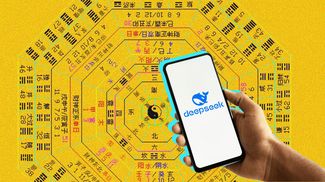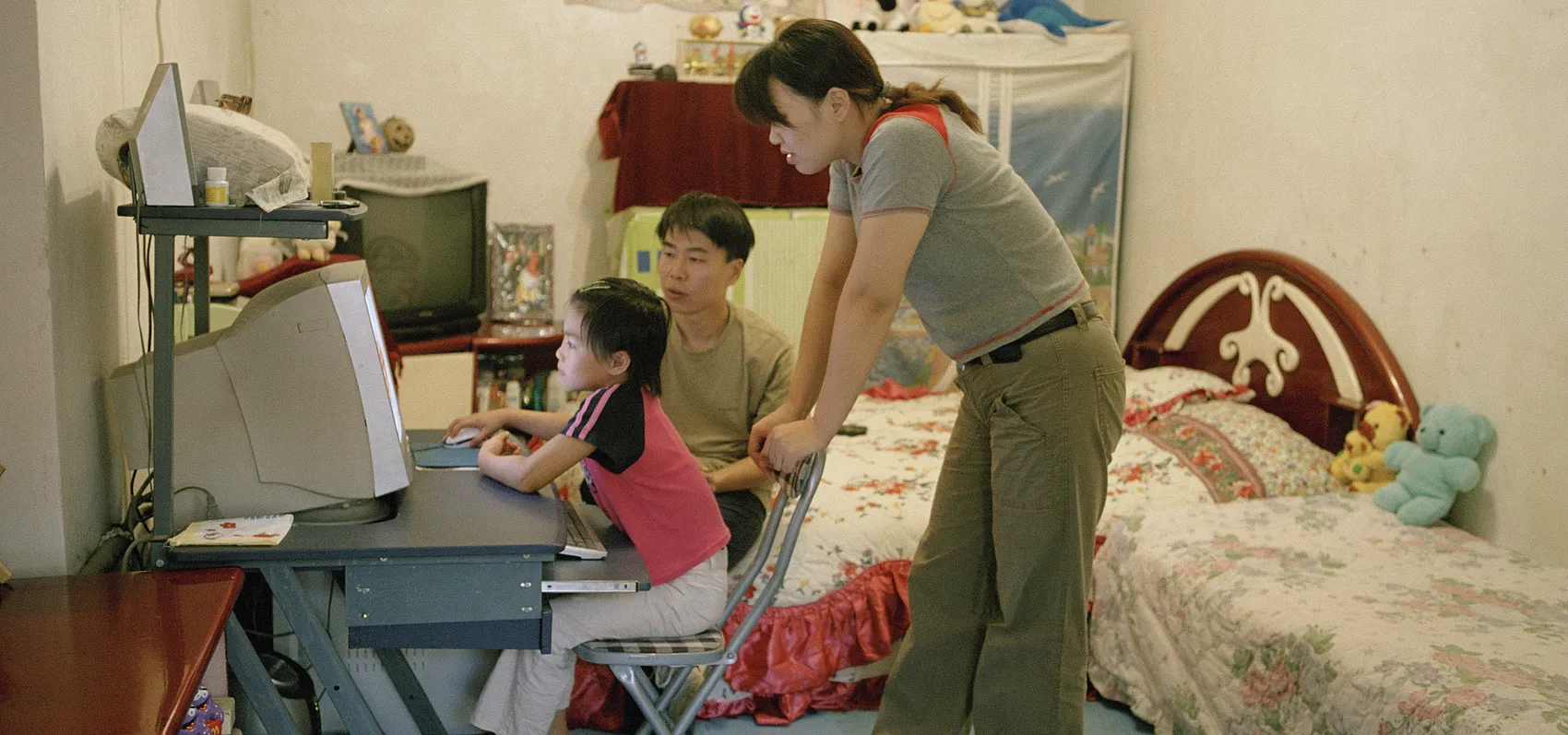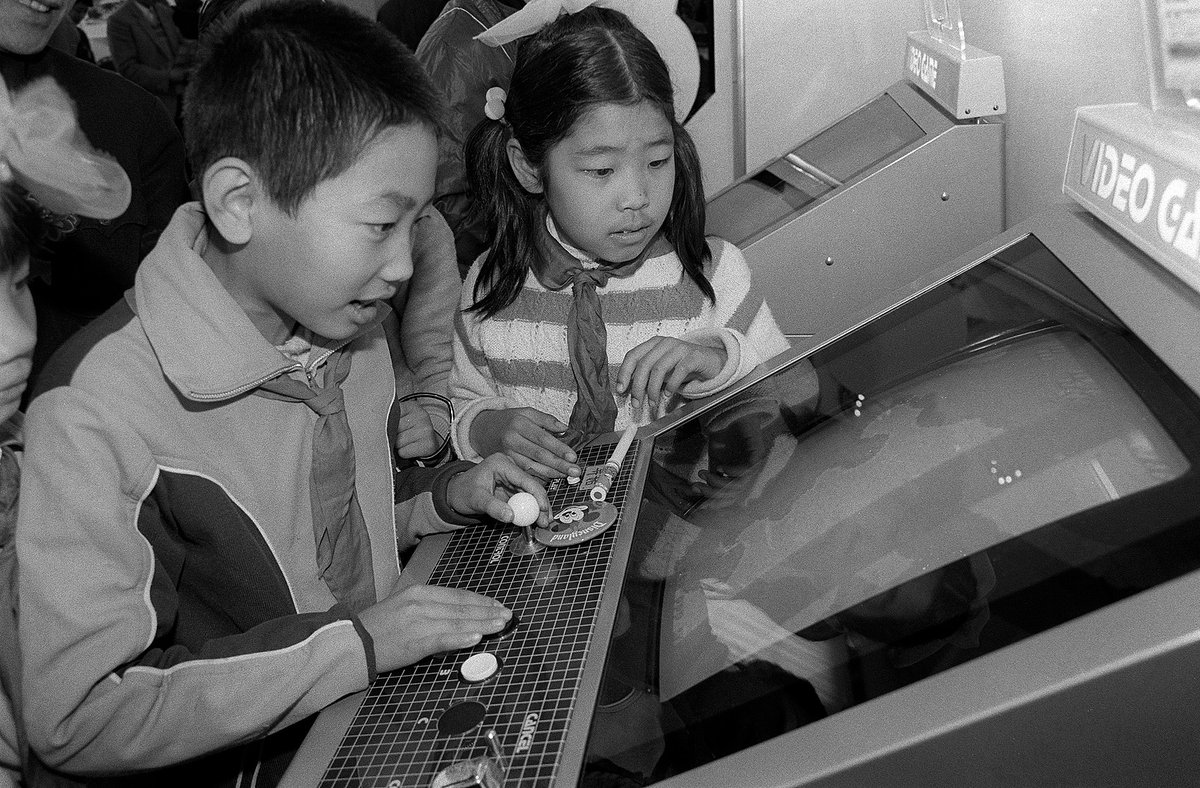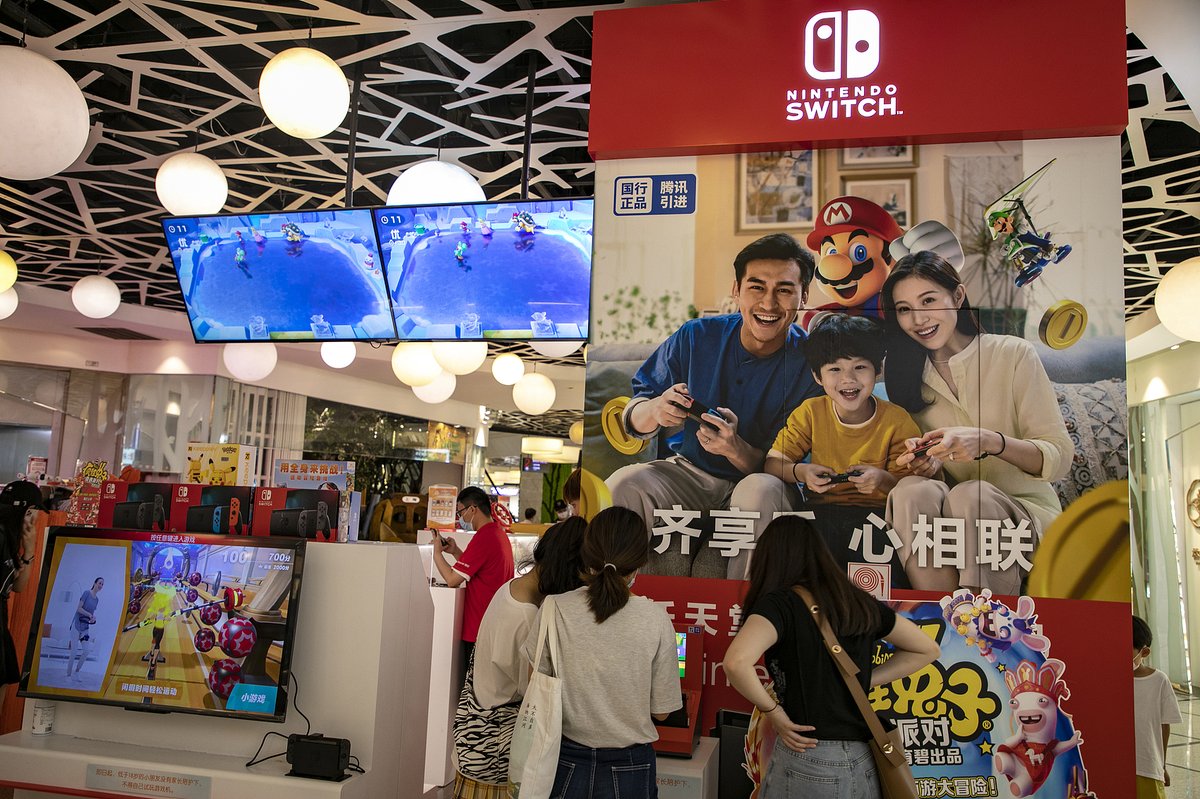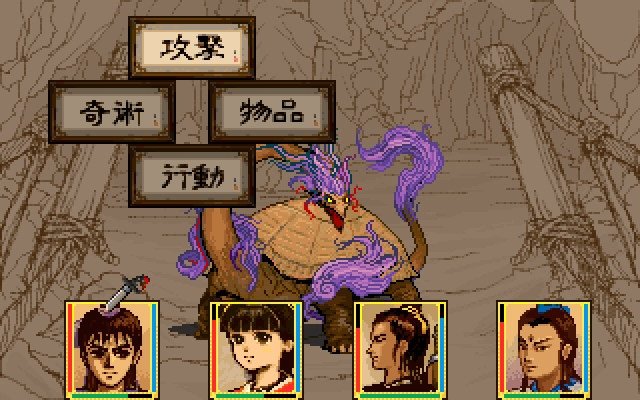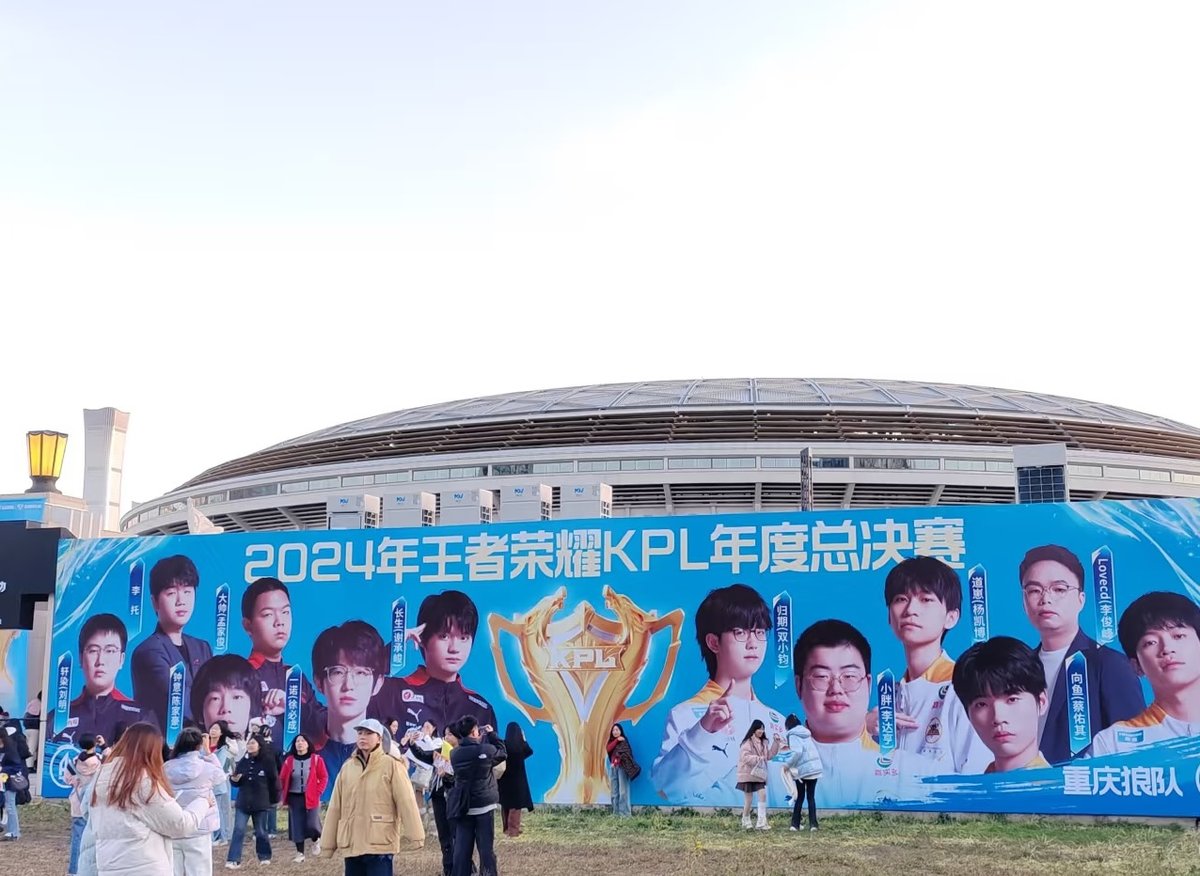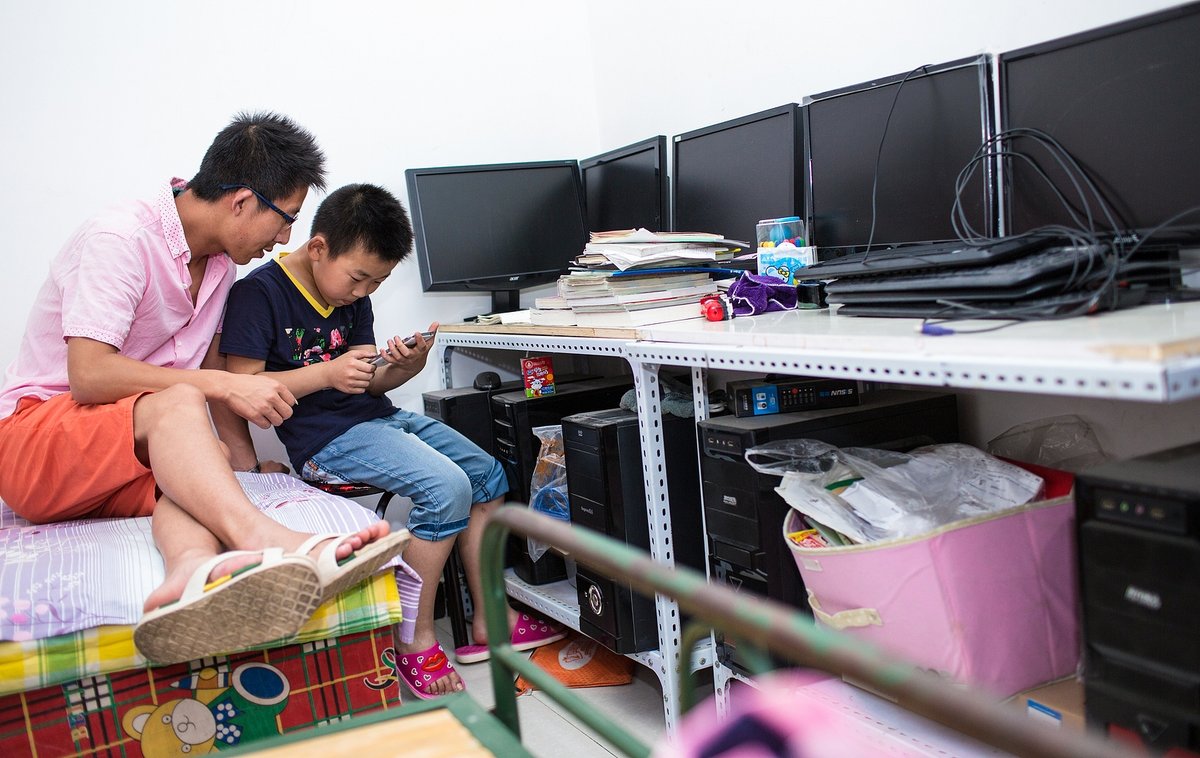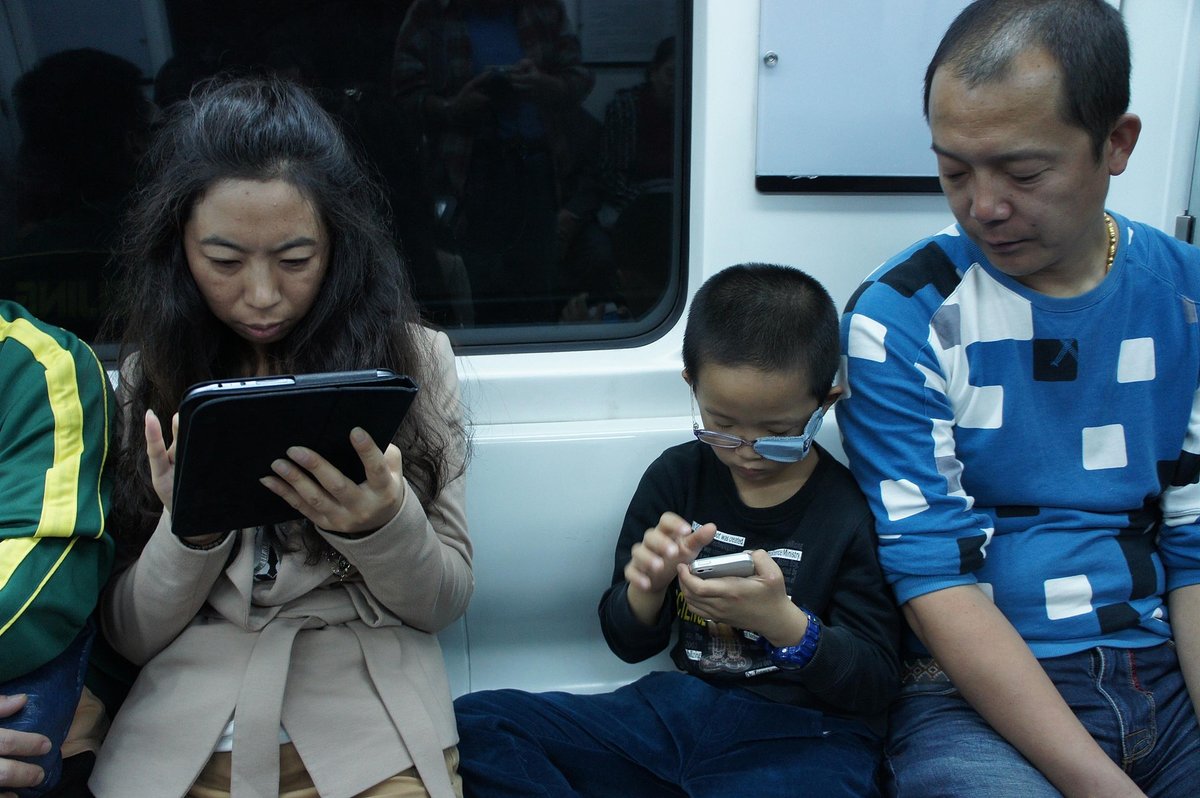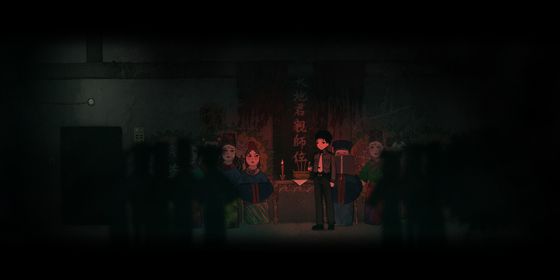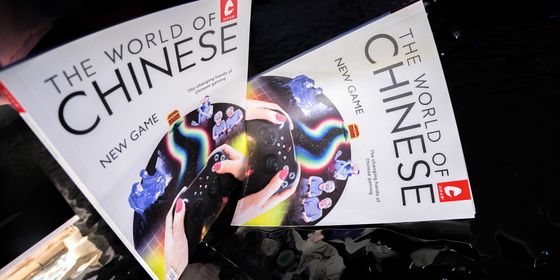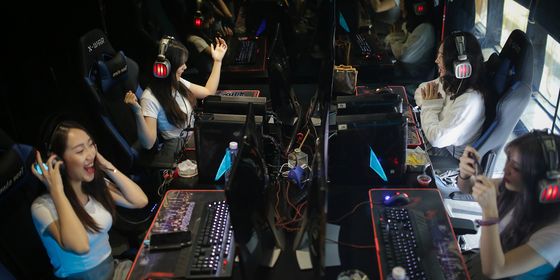With the success of “Black Myth” and a new generation of parents who grew up playing video games, China has leveled up its understanding of gaming. But traditional beliefs may be hard to break.
When Qi Jingwen (pseudonym), a mother of two, noticed her 11-year-old firstborn glued to the phone screens of older kids, watching them play the popular shooting game PlayerUnknown’s Battlegrounds (PUBG), she knew it was time to step in. A police officer in Ordos, a small city in China’s Inner Mongolia region, Qi has never been a fan of mobile games—for her, they bring to mind colleagues getting scolded for gaming on the job, yet still unable to quit. “If adults can’t even control themselves, it’s even more dangerous for the kids,” she says.
But instead of lecturing her son about the dangers of gaming, Qi surprised him with a Nintendo Switch console loaded with The Legend of Zelda, Super Mario Odyssey, and Ring Fit Adventure.
“I told him games on such small screens are not fun, and that I’d buy him a big [console] with good games,” says Qi, who believes that if her children are going to play games, it’s better for them to do so with her or at least under her supervision at home. “[Playing with a controller] can also help him develop better hand-eye coordination… I do feel he is more responsive than his peers.”
As part of a generation that grew up playing console games like Contra on China’s classic Little Tyrant console—a clone of Nintendo’s Famicom system—Qi and many others have adopted a more relaxed approach to parenting when it comes to video games. Instead of viewing them as an addictive vice (dubbed “digital heroin” by state media) that can ruin lives, they are beginning to embrace the benefits video games can offer children. The international success of domestic titles like Genshin Impact and Black Myth: Wukong also seems to be shifting perceptions in China, where video games are increasingly celebrated as cultural exports. Yet these changes remain limited, with many—especially educators and anxious parents with incomplete knowledge about games themselves—still concerned about the risks of addiction and excessive screen time, reflecting a delicate balance between embracing modern entertainment and safeguarding traditional values.
Read more about gaming in China:
- Lost in Translation: The Localization Challenge of “Black Myth: Wukong”
- Leveling the Playing Field: China’s Female Gamers Struggle for Recognition
- Grinding for Gold: Inside China’s Game Boosting Economy
“The public discourse on games is very much similar to what I experienced growing up [in the 80s and 90s],” says Dr. Liu Mengfei, a game researcher at Beijing Normal University and the founder of Homo Ludens Archive, the first game archive in China.
“Everyone used to say [the public attitude toward gaming] would improve once our generation became the mainstream. Now that we are, teenagers are still limited to three hours of game time a week,” says Liu, referencing the national game time limit for minors on all mobile games.
Chinese society has historically had a negative view of games in general, even in ancient times, where they were often associated with child’s play by Confucian culture. In her research, Liu reviews characters who were portrayed as players in The Twenty-Four Histories (《二十四史》), a comprehensive chronicle of China’s rulers from the prehistoric Yellow Emperor to the Ming dynasty (1368 – 1644), and finds that all of them are either categorized as slaves, jesters, ill magistrates, or tyrants. “None of them are junzi [an exemplar of Confucian ideals],” Liu says. “None of them are mainstream literati that rule society.”
Given this historical mindset, it’s no surprise that when video games were first introduced in China in the 80s, they were quickly labeled as dangerous, sparking a moral panic. The country ultimately banned the sale and import of “electronic game equipment and accessories”—in other words, all console games—in the early 2000s. Then, to shore up control of online gaming content, the National Radio and Television Administration issued the “Notice on Banning the Broadcasting of Computer and Online Game Programs” in 2004.
Despite these strict regulations, stories of gaming addiction among teenagers dominated media headlines in the late 90s and 2000s. One of the most notable examples was a slew of documentaries, books, and news reports about the “gaming rehab expert” Yang Yongxin, who founded his rehab center at a mental hospital in Linyi, Shandong province, in 2006. Produced largely by reporter Liu Mingyin, these reports heavily demonized video games as a highly addictive vice that could lead to violent behavior in children. The infamous Dr. Yang used extreme methods, most notoriously electric shock therapy, on minors who were sent to his center by their parents. While most of the “success cases” depicted in Liu’s reportage later turned out to be either completely fabricated or highly distorted, and many of Yang’s patients described traumatizing, ineffective, and inhuman treatment within the center, the doctor remained a “savior” in the hearts of many parents. Even today, many believe that Yang cured their children. His “rehab center” was reportedly shut down in 2016. But when a reporter from The Beijing News visited the hospital in Linyi in 2019, they found that Yang was still working there as a doctor and continued to see patients.
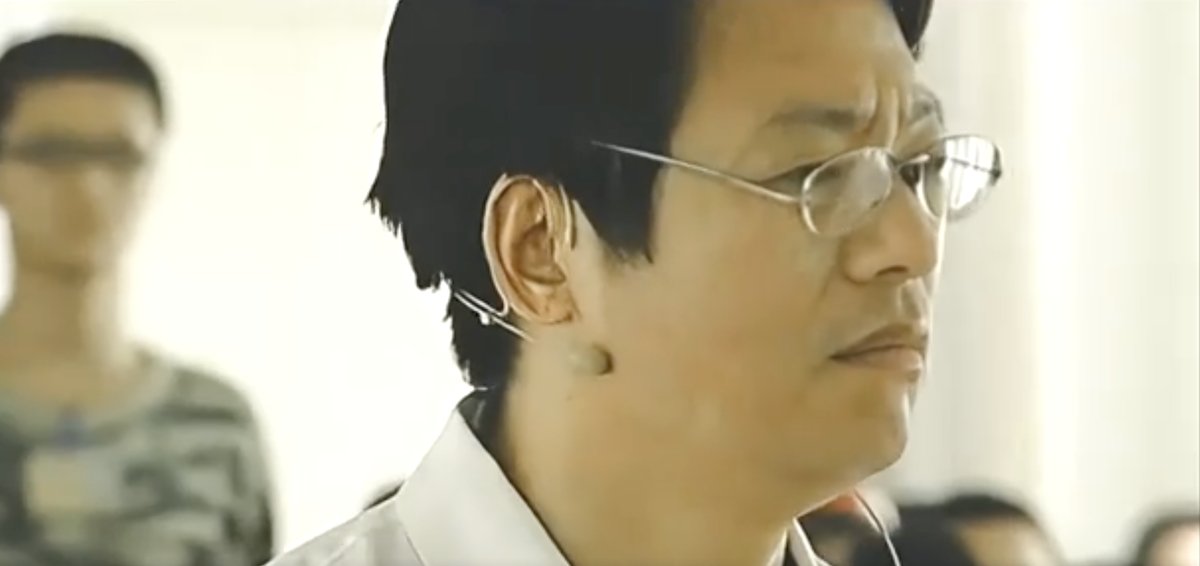
Dr. Yang Yongxin used electroshock “therapy” on patients, and some of his “educational methods” were seen as a form of mental brainwashing. His internet addiction treatment center was even referred to as a “concentration camp” of the modern era when the media revealed the harsh conditions within. (Screenshot from Haokan Video)
Qi is part of the post-80s generation that grew up hearing these narratives, but she counts herself fortunate to have had parents who gave her a certain degree of freedom to play video games, especially during long holidays. “I never felt truly addicted to those games. I just played to relax,” Qi tells TWOC. “But if my grades slipped, I wouldn’t be allowed to touch a console for a while.”
Qi believes her parents’ more laid-back approach has influenced how she raises her own sons, now 11 and 7. Rather than banning playtime entirely, she wants them to develop better time-management skills. “I kept telling my sons that if they manage their studies well, they’ll have all the remaining time to play. And if we play together, I can better control the frequency and duration of the play.”
Qi is not alone. Many from the post-80s generation, who don’t feel video games negatively affected their lives growing up, are now parents themselves, and are adopting a more balanced approach. In a short video that has garnered nearly 160,000 “likes” on Douyin, China’s version of TikTok, an education-related influencer tells his followers that if parents are knowledgeable about games and introduce only games of a “high quality” to their children early on, there’ll be no need to worry about gaming addiction, as their children won’t be drawn to “free-to-play” mobile games designed to hook players. “Once you’ve been spoiled, you can’t settle for anything less,” says the influencer. Over 20,000 took to the video’s comments section, either asking for age-appropriate game recommendations or sharing their own success stories of playing educational games with their children.
“I know parents who forbid their children from using any electronic devices from a young age,” says Chu Dandan, TWOC’s former chief editor. “But once they inevitably got hold of them in high school, they became really addicted because they’d never experienced anything so entertaining before.”
Chu bought her son, now 16, his first Nintendo Switch when he was in third grade. She tells TWOC that her son is not at all interested in mobile-based games now, and actually looks down on his classmates who play games like Genshin Impact. “There’s definitely a hierarchy when it comes to different types of games,” says Chu. “I once asked him what PUBG was like and if he could show me. He agreed and walked me through a game, but I couldn’t really get the hang of it. Then he said, ‘See? Not that interesting, right?’” Chu says she also finds the games that her son now plays, like Euro Truck Simulator and Outer Wilds, quite entertaining as well.
Liu echoes Chu’s views on addiction, believing that those who directly associate games with negative outcomes often lack knowledge about them—in other words, they have low game literacy. All they know or hear about are popular mobile games designed to encourage prolonged playtime and repeated in-game purchases.
While she acknowledges that many mobile games can be addictive to players of all ages, she also points out that well-designed, high-quality craft games—those that emphasize building and creation—can be beneficial for children, especially teenagers. Liu grew up playing craft games like Xuan-Yuan Sword, a domestically produced, historical fantasy role-playing game (RPG) series, and Uncharted Waters, a Japanese RPG themed around the Age of Discovery. “They actually paved the way for my future as a historian,” Liu, who earned her doctorate in history from China’s prestigious Tsinghua University, tells TWOC.
Chu’s son, Xu Chucheng, a freshman at a Beijing high school, says that while playing games hasn’t, to his knowledge, directly helped his studies, finishing tough games, like Black Myth, does give him a strong sense of accomplishment. “Some of these games have such well-crafted storylines or graphics that playing them feels like watching a movie or enjoying art and music,” says Xu, who started out playing games on his mom’s iPad when he was around 4.
Just looking at the numbers, China’s growing gaming market seems to reflect a change in public attitudes as well. The market’s total revenue reached 302 billion yuan in 2023, an almost 14 percent year-on-year increase, according to an industry report by Beijing research institute Gamma Data (CNG). Chinese-made games, including Genshin Impact, have been hailed as cultural exports, racking in over 16 billion US dollars overseas last year and making headlines in state media for their outsized influence. Esports are increasingly recognized by the mainstream as a legitimate career path, especially after Team China topped the medal board in both the 2018 and 2022 Asian Games, and livestreamers started making millions from their gameplay. The final of the 2024 King Pro League (KPL), the highest-level professional esports tournament for Honor of Kings, the world’s most-played mobile game, wrapped up this November at Beijing’s Workers’ Stadium, drawing over 30,000 live spectators from across the country. The reality show We Are the Champions, where celebrities and professional esports athletes are invited to compete in Honor of Kings, has released three seasons since 2022. Even Qi’s 11-year-old son had expressed interest in becoming a professional esports player so he could make money doing what he loves (before quickly being discouraged when Qi showed him how hard players have to train in camps before entering a professional league).
However, upon closer inspection, this seeming shift in attitude is only superficial, as gaming still remains strongly associated with addiction at the policy level and is seen as harmful to both mental and physical health. In 2016, the government implemented a regulation requiring all games to obtain a license before publishing. Since then, the industry has twice experienced what insiders dubbed a “license freeze (版号寒冬)”—once in 2018 and again in 2021—each cumulating in a ban on publishing lasting more than 260 days. In August 2018, eight government ministries jointly released the “Comprehensive Plan for Preventing and Controlling Myopia in Children and Adolescents,” urging educators and parents to strictly limit screen time for minors to prevent eye strain and nearsightedness. This further deepened the gaming industry’s crisis, causing game stocks to plummet. In August 2021, all major gaming platforms in China, under government guidance, introduced anti-addiction systems for minors. All users were required to register with their national ID, and those under 18 were limited to just one hour of gaming per day, from 8 p.m. to 9 p.m., on Fridays, Saturdays, Sundays, and public holidays—dealing an even greater blow to the industry. Reports of mobile phone addiction, especially in rural areas, and children spending hundreds and thousands of yuan of their parents’ money on in-game purchases, also continue to hit the headlines, further tarnishing the public’s perception of video games.
Xu finds that his friends’ parents don’t tend to share his parents’ relaxed attitude toward gaming. “There are only a few who can play online games with me,” Xu tells TWOC. “When I was in middle school, some of my friends had quite strict parents. I often wanted to play with them, but their dads were at home, so we couldn’t.”
While Xu understands why adults might worry about children becoming addicted to games, he doesn’t view the existing official measures as productive—and he’s not wrong. The government’s anti-addiction system has been largely ineffective, as children can easily register with an adult family member’s ID card, according to the news agency Xinhua.
“Games are in our nature; they’re the default setting for all of us,” wrote Liu in an opinion piece for the news outlet Ifeng Perspective in January, explaining why simply banning games won’t work. Instead, Liu stresses that it’s crucial to raise society’s gaming literacy level, as even adults are susceptible to toxic gamification, whereby negative behavior patterns such as increased spending or addictive engagement are reinforced. She points to the prevalence of such design strategies on apps many Chinese use on a daily basis, such as the payment app Alipay and e-commerce app Pinduoduo, the parent company of Temu.
“They may spend a lot of time playing with gamified software to check in [log in daily to receive benefits], to receive special badges, and forward such messages to their friends, polluting their social network,” explains Liu.
The Boke Foundation, a charity organization founded by Shanghai game developer and publisher Boke, launched the “Gaming Literacy Plan” in 2021, aiming to promote a healthy relationship among teenagers toward games, provide support to parents who are concerned about gaming addiction, and offer tools for frontline educators. The initiative includes lectures and collaborative events where teenagers take on the role of game designers, rather than just players, and the training of over 150 social workers in Shanghai to become “gaming literacy coaches.” This year, they have also taken their programs beyond Shanghai to rural schools in Yunnan, Guizhou, and Gansu. In Dunhuang, Gansu province, instead of working with students, the organization hosted a workshop for 20 school teachers about how to bring games into everyday teaching.
“We can use this tool to bring a global perspective to the children of Dunhuang, allowing them to see the world even from a remote region,” wrote Boke’s official WeChat account in September.
Liu also cites school teachers as an undervalued player in combatting low gaming literacy, stressing that teachers should be telling students how to differentiate beneficial educational games from nefarious and potentially addictive games instead of preaching that all games are harmful. Her organization, Homo Ludens, has been working with secondary school teachers around China to develop teaching plans that utilize contemporary games. These plans, totaling 36 so far, are designed to teach students academic subjects like math and history, as well as life skills, such as how to handle failure, emotional crises, and even sexual relationships.
Last year, the gaming media outlet Youxi Putao reported on secondary school teachers using games like Zelda and Assassin’s Creed to teach physics and history, but such cases remain rare in China’s high-pressure education system. Liu admits that she’s not aware that any of the teaching plans she and her team developed are actually in use in everyday classrooms. Similarly, the parents and students TWOC spoke to said they have not witnessed any sort of teaching through games in school.
But Liu remains hopeful that if gaming literacy increases, more people will be able to recognize that addiction is a symptom, not the root of the problem. “[If] you indulge only in gaming instead of interacting with your physical world, it shows that something is wrong—but the game is not the culprit.”
Chu, Xu’s mother, says she was worried about him spending too much time playing video games during the pandemic, when social interaction was limited. “I was worried he might turn into someone who only interacts with screens… But interestingly, as soon as the pandemic ended, he immediately went back to socializing with his friends,” says Chu. “It turns out that when it comes to choosing between studying, reading, or gaming, he’ll pick gaming. But if it’s a choice between gaming and going out to play pool with his classmates, he’ll likely choose the pool tables.”
She believes that only children whose extracurricular lives are too monotonous or dull see gaming as their most enjoyable pursuit, leading them to focus entirely on video games while avoiding everything else.
Now a teenager, her son Xu has recently found another pastime that excites him more than games: hitting the gym. “The sense of accomplishment I feel when I see my muscles grow is the same as when I complete every challenge in Black Myth,” he says.

